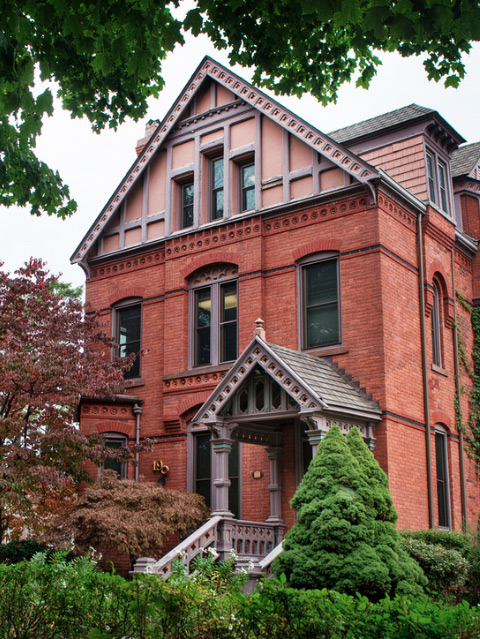
A nursing home abuse attorney can help you hold caregivers and the facility itself accountable for the harm caused to an elderly loved one. Nursing home abuse can take multiple forms, each of which can be difficult to identify.
The Flood Law Firm has the resources and experience to investigate abuse and neglect in nursing homes. Our nursing home abuse attorneys can collect evidence and take legal action on your behalf.
Call The Flood Law Firm at (860) 346-2695 today for a FREE consultation. Our attorneys handle nursing home abuse claims in Danbury, Middletown, Waterbury, Bridgeport, and all of Connecticut.
Common Types of Nursing Home Abuse
One of the challenges of quantifying the instances of abuse in nursing homes is the fact that mistreatment is frequently underreported. Underreporting may stem from a number of different factors, including fear of retaliation or punishment, lack of capacity, shame, and more.
In a recent study, the National Center on Elder Abuse (NCEA) discovered “high levels of institutional abuse” among residents of nursing homes and other institutions. The most common forms of abuse reported by residents include:
1. Psychological Abuse
According to the NCEA, psychological abuse accounts for more than one-third (33.4%) of the reported instances of nursing home abuse. It is the most common type of abuse reported in nursing homes by far.
Broadly, psychological abuse may consist of insults, threats, intimidation, manipulation, and other actions that harm an individual’s emotional and mental well-being. It can cause seniors to become withdrawn and evasive, as well as fearful of nursing home staff.
2. Physical Abuse
Although verbal and psychological abuse are more common, psychological abuse is still a major problem in our nation’s nursing homes. Of the residents who report abuse, 14.1% report being physically abused.
Physical abuse may involve hitting, kicking, shoving, and other violent acts. It could also consist of using physical or chemical restraints.
3. Financial Abuse and Exploitation
Abuse and exploitation of a nursing home resident’s (often limited) finances is alarmingly common as well. From stealing money and belongings to identity theft, data from the NCEA show that financial abuse makes up 13.8% of complaints among nursing home residents.
Financial mistreatment is one of the most difficult types of nursing home abuse to prove. Abusers often target seniors with cognitive impairments or limited family involvement to obtain access to bank accounts, convince or coerce residents to change their wills, and more.
Read More: How to Prevent Nursing Home Abuse
4. Neglect
Neglect is the failure of nursing home staff and caregivers to meet a resident’s medical, hygiene, and other needs. It accounts for 11.6% of reported nursing home abuse, although this number is likely much lower than the actual instances of nursing home neglect.
The effects of neglect can be catastrophic. Residents may develop bed sores, suffer malnutrition or dehydration, sustain injuries in falls, experience a decline in health, and more. In extreme cases, neglected residents may wander the facility unsupervised or leave the nursing home altogether (known as elopement) – both of which can end in tragedy.
5. Sexual Abuse
Data from the NCEA show that sexual abuse makes up only 1.9% of reported cases of nursing home abuse. However, studies suggest that sexual abuse in nursing homes is much more prevalent than this statistic reveals.
Sexual abuse and assault often go unreported. This is true across populations, including among seniors.
In addition to physical injuries sustained in an assault, survivors of sexual abuse may exhibit a number of behavioral changes. These include depression and anxiety, hypervigilance, mood swings, aggression, and more.
Proving Nursing Home Abuse
Multiple issues can make it difficult to prove that a loved one was abused or neglected in a nursing home. Residents may be unable or too afraid to tell even their loved ones about the ordeal. Nursing homes, meanwhile, will often take steps to cover up abuse and neglect.
A nursing home abuse attorney can gather evidence of negligence or wrongdoing. This includes:
- Reviewing your loved one’s medical records
- Inspecting the nursing home for unsafe or unhygienic conditions
- Speaking to witnesses
- Reviewing inspection reports; nursing homes are required to meet certain state and federal standards, and fines and penalties may indicate ongoing violations of the standard of care
- Consulting expert witnesses
Your attorney can also calculate the damages you and your loved ones have sustained as a result of nursing home abuse. This may include medical expenses, pain and suffering, and more.
Contact a Nursing Home Abuse Attorney Today
Moving an elderly loved one into a nursing home is never easy. Abuse and neglect are constant concerns. If a member of your family has been victimized in a nursing home or other care facility, it is important to speak to an attorney as soon as possible.
The Flood Law Firm has the experience and resources to make a claim for nursing home abuse. Our team is dedicated to pursuing the maximum compensation in your case and providing you with the highest level of legal service every step of the way.
